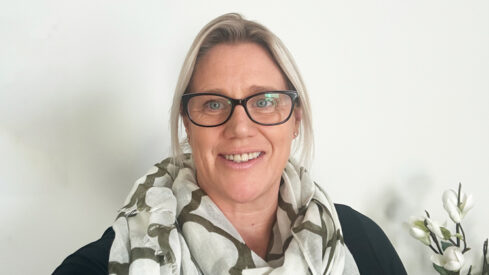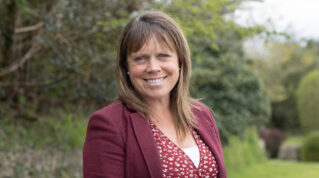The response to Ofsted’s new inclusion judgment has by and large focused on SEND. But there’s another group that new inspections will zero in on. And having grown up as a looked-after child, it’s a group with which ASDAN CEO Melissa Farnham is very personally acquainted.
“If I was starting school now, my education health and care plan would be worth a good old bomb,” she laughs. “Dyslexic apparently, I’m still not sure about that one myself, epilepsy, looked-after child, ward of court, some interesting layers of trauma…”
We joke that if there was an inclusion bingo card, the young Farnham would’ve had a full house. In reality though, few children in care tick only one box in the life chances lottery.
According to the latest Department for Education data, looked-after children are more than three times more likely to have a special educational need (SEN) than all children, and almost seven times more likely to have an education, health and care plan (EHCP). For those with EHCPs, social, emotional and mental health needs are the most common types of primary need.
“Ten years ago, the term ‘comorbid needs’ was used all the time. When you think of what morbid means, it’s a horrible way to talk about young people,” Farnham adds.
“But I often talk about us having comorbid layers of education. Curriculum, regulators, a cohort of young people who are massively influenced by social media. We’ve made education comorbid, basically. We’re killing it.”
As CEO of ASDAN, an education charity that provides courses mostly for pupils who face barriers to learning in traditional education settings, Farnham is not only uniquely experienced to diagnose the disease; she is uniquely placed to administer the remedy.
Achieving and thriving
On paper, she was highly unlikely to get to her current position. “Ambition for me was potentially capped very early on,” she says.
“Dad left. Mum was quite unwell. She had quite a complex personality, and she just wasn’t able to cope. That presentation could be quite physical, sometimes towards us.”

When Farnham was two, her older brother (then five) used the letters on the underside of Smarties lids to leave a message for the kindly neighbour who used to regularly give them the treats. Ostensibly a cry for help, the neighbour called the police, and it wasn’t long before the pair were taken into care.
There followed a sequence of short placements and they bounced around from home to home until, when Farnham was just five, they were picked up from a water park by their grandparents, who they’d never met.
“We were supposed to just go for six months while mum could get sorted out. Court hearings and all sorts happened, but she never came, so we became wards of court because our grandparents didn’t want to have full ownership of us. They had just retired.”
Her brother’s behaviour was challenging, “because he’d had to witness so much, I think, and felt quite helpless … and I basically became an elective mute for about the first 18 months of school”.
Farnham holds her grandfather up as a model of ‘achieving and thriving’. He rose to run the site operations of an entire hospital in spite of being functionally illiterate.
Eventually, though, he was diagnosed with asbestos poisoning contracted on the job. The grandparents moved to South Africa, and the siblings moved back into care.
Then followed a whole new series of placements. “The shortest was three weeks. The longest spanned Years 7 and 8, and nearly half of Year 9. That was the closest I came to continuity in education.”
Farnham made good progress at school. Her brother, she says, “followed a very different path”.
She’s keen to protect his privacy, but she shares that “he didn’t get GCSEs or A-levels. The system was more difficult for him to navigate. But he runs huge projects in Antarctica now.”
Breaking down barriers
Today, outcomes for looked-after children continue to lag behind their peers.
In 2018-19, 37 per cent met the expected standard in reading, writing and maths combined at the end of key stage 2, compared with 65 per cent for all pupils. Last year, it was 34 per cent, compared with 61 per cent for all pupils.

Their average Attainment 8 score is also just 18.3, compared to 45.9 for all children.
And all this while attending what are nominally the country’s best schools. Statutory guidance tells local authorities to prioritise “schools judged by Ofsted to be ‘good’ or ‘outstanding’” when placing looked-after children in a new school” and, barring exceptional circumstances, never to place them in one judged ‘inadequate’.
(The guidance has yet to be updated to reflect Ofsted’s jettisoning of headline grades.)
But this wasn’t the case when Farnham was at school, making her progress even more of an outlier – especially as schools themselves erected more barriers.
At 16, living alone in supported accommodation, she won the election for the role of head girl – but her school kyboshed it. The headteacher called her into his office and told her simply that “it wouldn’t be appropriate because you’re a ward of court”.
“The school also made me take child development instead of French at GCSE. ‘It’ll help you cope when you’re a mum. It’s more realistic for someone like you’.”

You can tell, when she recounts this, that she still carries a healthy amount of her teenage fury at the injustice.
She went on to complete her A-levels while living independently, “thanks to the support of two teachers who believed in me”. She later did a teaching degree “partly to get out of a bedsit and into student halls, but also because I wanted to emulate those teachers”.
And emulate them she did, pursuing a career that has included being headteacher in special schools for 14 years, “serving some of the most vulnerable (and most resilient) young people”, many of whom “didn’t belong in those SEN schools. They were absolutely young people I would have been in a classroom with when I was at school”.
A promise of change
Established by the University of the West of England in 1991 as a curriculum project, ASDAN, which Farnham has been running since last June, became an independent charity in 1997.
Today with, Lord Jim Knight as its patron, the Award Scheme Development and Accreditation Network continues to pursue that project’s original aims: to provide young people with opportunities to develop skills for learning, life and work.
“It was always there for those who have barriers to engagement,” Farnham explains. “It’s all built around seven very core poverties: societal, cultural, political, spiritual, physiological and cognitive, as well as economic, of course.”
Last year, more than 42,000 learners (here and in 30 other countries) completed one of its programmes, some 7,500 of them receiving Ofqual-certified qualifications.
That’s a remarkable performance, given that Farnham says the organisation’s hay day was some twenty years ago, before “performance tables” incentivised schools away from the broader curriculum content ASDAN caters for.
She’s clearly hopeful this could be the dawn of new golden age. She took up her role just a month before Labour came to office on a promise of ‘change’, and Farnham sees opportunity in the government’s reform programme to make that happen.
But she does offer Bridget Phillipson a word of warning. “I can see what the ambition around her using the word ‘belonging’. She’s trying to get rid of the word ‘inclusion’ and hone in on equity, but to belong somewhere you need identity.

“How are Ofsted going to judge if a headteacher makes sure every learner belongs? As an executive headteacher, I could quantify equity with proxy data like attendance, or hard assessment data. I can’t do that if I’m trying to make them feel they belong in an environment that I know doesn’t quite work for them. That’s not solving the problem.”
For Farnham then, belonging is largely determined by how young people experience their environment, and in turn, that is largely determined by what that environment enables them to do.
Drawing on her grandfather’s and her brother’s experiences, she says: “If we want all young people to thrive and achieve, what we mean is that we want them to be capable. So, what does capable look like?”
Brewing rebellion
Which brings us to where Farnham really thinks the opportunity lies for Labour.
Ofsted’s framework directs schools towards the areas where improvement is needed, but as with looked-after children, so too with headteachers: success depends on the environment enabling them to meet Ofsted’s expectations. And that can’t happen without reforming curriculum and performance measures.
“I talk to MAT CEOs, and what I hear a lot is ‘we might think about rebelling’. You know, ‘should we just say we’ll do Progress 5 and we can put qualifications like ASDAN back in, because we know it works?’.”
She says the charity’s courses offer schools “portfolio learning […] that reflects progression, that the learner’s got agency over and can see happening and can recover from and then try again.
“Our courses were built to develop executive function. Let’s get back on that track, because that’s what’s missing from education right now.”














Your thoughts